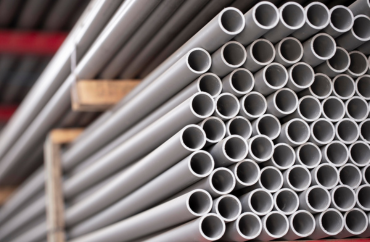
Pipelines form the backbone of many infrastructure projects, whether for drainage, sewage disposal, or irrigation. Among the many options available, Reinforced Cement Concrete (RCC) pipes stand out for their durability, strength, and ability to withstand heavy loads. These pipes, made from cement, aggregates, and steel reinforcement, are extensively used in urban and rural infrastructure projects due to their long lifespan and cost-effectiveness.
In this guide, we’ll take an in-depth look at RCC pipes, their types, manufacturing processes, benefits, applications, and installation techniques. Whether you’re a contractor, builder, or someone involved in infrastructure projects, this guide will help you understand why RCC pipes are a preferred choice over other alternatives like PVC or steel pipes.
An RCC pipe is a type of concrete pipe reinforced with steel bars to enhance its load-bearing capacity. Unlike regular concrete pipes, RCC pipes are designed to withstand external pressure and heavy loads, making them ideal for sewage systems, stormwater drainage, irrigation, and culverts.
These pipes are available in various thicknesses and diameters, depending on the intended application. RCC pipes are also known for their resistance to corrosion, environmental hazards, and chemical reactions, making them an excellent choice for underground pipeline systems.
NP2 RCC pipes are the lightest type and are commonly used in low-pressure water systems, small drainage projects, and agricultural irrigation. Since they have a lower load-bearing capacity, they are not suitable for high-traffic areas or industrial applications.
NP3 pipes are moderately strong and used for sewage lines, stormwater drainage, and highway culverts. They are designed to withstand medium-traffic loads, making them ideal for urban and semi-urban infrastructure projects.
NP4 pipes are the strongest and most durable RCC pipes, built to handle heavy loads, high-pressure water flow, and industrial applications. These pipes are widely used for highways, railway projects, and major drainage systems.
These are specially designed to carry high-pressure water and are commonly used in municipal water supply systems, hydroelectric projects, and industrial plants.
Jacking pipes are used for trenchless installations, where traditional excavation is not possible. These pipes are laid underground using jacking techniques, making them suitable for urban drainage systems without disrupting traffic or existing structures.
The strength and durability of RCC pipes depend largely on their manufacturing process. There are two major methods used to produce RCC pipes:
In this process, the concrete mix is poured into a rotating mould, and centrifugal force compacts the mix into a dense, uniform pipe structure. This method is commonly used for large-scale production of RCC pipes.
In the vibration method, the concrete mix is placed in a mould and compacted using vibrators. This process ensures proper bonding of the concrete and reinforcement. It is generally used for smaller-diameter RCC pipes.
Once the pipes are cast, they are cured for at least 28 days to attain their full strength before being used in construction projects.
RCC pipes are built to last over 50 years, even in harsh environmental conditions. They are resistant to chemical attacks, extreme temperatures, and corrosion, making them ideal for long-term infrastructure projects.
Due to their reinforced structure, RCC pipes can withstand heavy traffic loads, high water pressure, and soil movement, making them perfect for sewage, drainage, and industrial applications.
Properly installed RCC pipes prevent leakage, ensuring efficient drainage and sewage flow. Their sealed joints make them ideal for underground systems.
Although RCC pipes have a higher initial cost than some alternatives, their low maintenance and long lifespan make them a cost-effective choice in the long run.
Made from natural materials like cement, sand, and steel, RCC pipes are eco-friendly and can be recycled after their lifespan.
RCC pipes have a wide range of applications, including:
1️⃣ Sewage and Drainage Systems – Used in both urban and rural areas to manage wastewater and stormwater flow.
2️⃣ Irrigation and Water Supply – Essential for agricultural irrigation and municipal water supply projects.
3️⃣ Culverts and Bridges – Used to allow smooth water passage beneath roads and railway tracks.
4️⃣ Industrial Waste Management – Helps in the disposal of factory and chemical wastewater.
5️⃣ Hydroelectric and Power Plants – Used for channelling water in hydroelectric projects.
RCC pipes are an integral part of modern infrastructure, offering strength, longevity, and cost-effectiveness. Whether used for sewage, drainage, irrigation, or industrial applications, these pipes provide long-term benefits with minimal maintenance.
By selecting the right RCC pipe type and ensuring proper installation, you can maximize their efficiency and lifespan.
house , bedroom, bed
+91 9606092193
HSR Layout, Bengaluru, Karnataka 560102